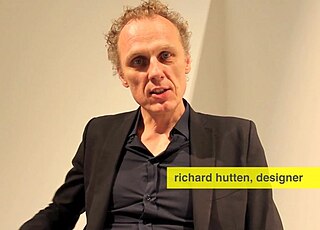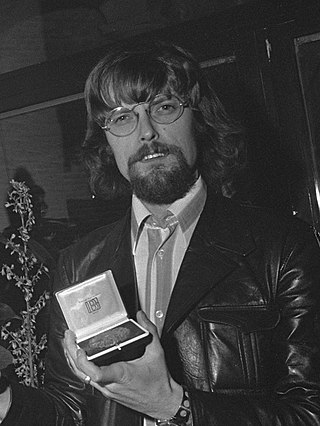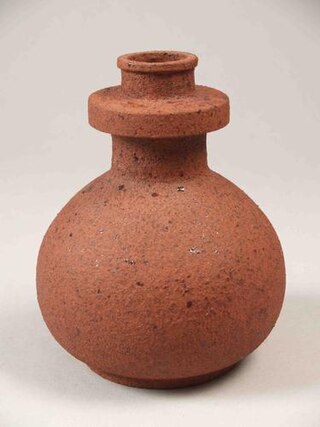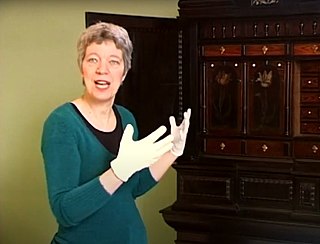
Municipal Museum Boijmans Van Beuningen is an art museum in Rotterdam in the Netherlands. The name of the museum is derived from the two most important collectors of Frans Jacob Otto Boijmans and Daniël George van Beuningen. It is located at the Museumpark in the district Rotterdam Centrum, close to the Kunsthal and the Natural History Museum.
Mark Manders is a Dutch artist, currently living and working in Ronse, Belgium. His work consists mainly of installations, drawings and sculptures. He is probably best known for his large bronze figures that look like rough-hewn, wet or peeling clay. Typical of his work is also the arrangement of random objects, such as tables, chairs, light bulbs, blankets and dead animals.

Richard G. J. Hutten is a Dutch industrial designer, art director, and artist who is active in furniture design, product design, interior design, and exhibition design.

Vincent Mentzel is a Dutch photographer, and staff photographer for the Dutch newspaper NRC Handelsblad since 1973. He is known for his photorealism.

Charley Toorop was a Dutch painter and lithographer. Her full name was Annie Caroline Pontifex Fernhout-Toorop.
Niek Kemps is a Dutch visual artist and lives and works in Amsterdam and Wenduine, Belgium.

Gijs Bakker is a Dutch jewellery and industrial-designer, educated at the Gerrit Rietveld Academie in Amsterdam, the Netherlands and the Konstfackskolan in Stockholm, Sweden.

Miguel-Ángel Cárdenas, also known as Michel Cardena, was a Colombian-Dutch, New Realism and Pop Art painter and a pioneer of video art in the Netherlands. His works cover a variety of artistic media, including painting, drawing, video, photography, object assemblages and digital art.

Hella Jongerius is a Dutch industrial designer.

Berend Strik is a Dutch visual artist working and living in Amsterdam.

Johannes Jacobus (Jan) van der Vaart was an influential Dutch ceramicist from the 20th century, known as founder of the abstract-geometric ceramics in the Netherlands.

Jan de Rooden was a Dutch ceramist and sculptor, who worked in Nijmegen, Paris, and Amsterdam.
Daniël (Daan) van Golden was a Dutch artist, who has been active as a painter, photographer, collagist, installation artist, wall painter and graphic artist. He is known for his meticulous paintings of motives and details of everyday life and every day images.
Barbara Visser is a Dutch artist, who works as conceptual artist, photographer, video artist, and performance artist.

Helena van der Kraan-Maazel born Helena Jirina Mazl was a Czechoslovakian-born Dutch photographer and partner in the artist duo Axel en Helena van der Kraan.
Axel Erik van der Kraan is a Dutch sculptor, performance artist and graphic artist, also known with Helena van der Kraan as Axel and Helena van der Kraan.
Ineke Hans is Dutch industrial designer.

The Rotterdam Design Award was an annual and later biennial design award in the Netherlands from 1993 to 2013. In the first five editions the work of the nominees were exhibited in the Kunsthal, and afterwards in Museum Boijmans Van Beuningen. The winners were selected by an international jury during this exhibition, and were announced at the end of the exhibition. The winners received an amount of € 20,000, which could be spent freely.

Margaretha Wilhelmina Francina (Mienke) Simon Thomas is a Dutch art historian, curator and author, working as a senior curator at Museum Boijmans Van Beuningen in Rotterdam. She is known for her works on the development of Dutch applied art and design.
Jeroen Eisinga is a contemporary video artist from the Netherlands. His work is characterised by its performance like character and its plots where an ordeal is often central. Simplicity is of key importance to Eisinga. His work is shot on film and is shot on 16mm as well as on 35mm format film.













